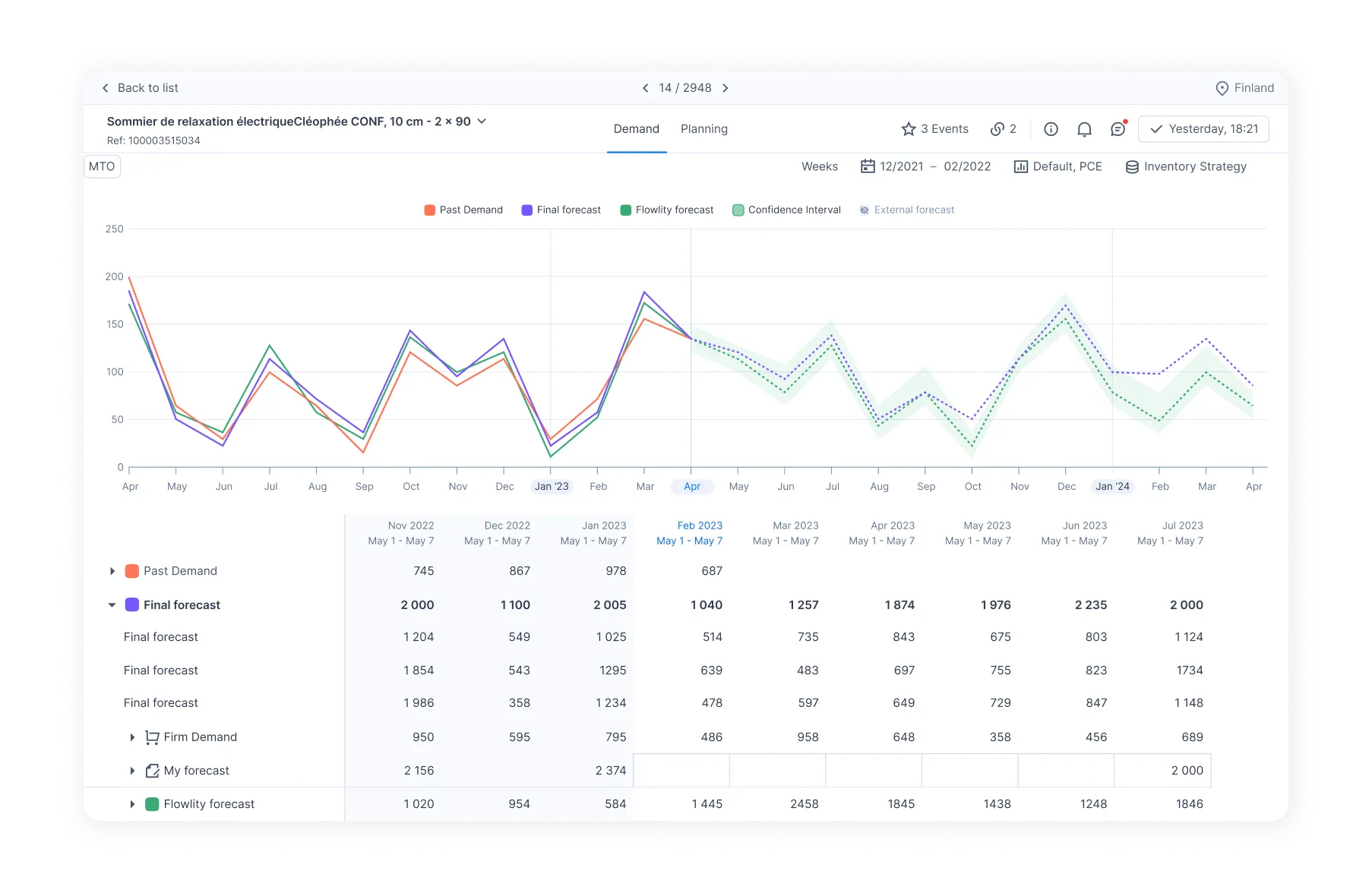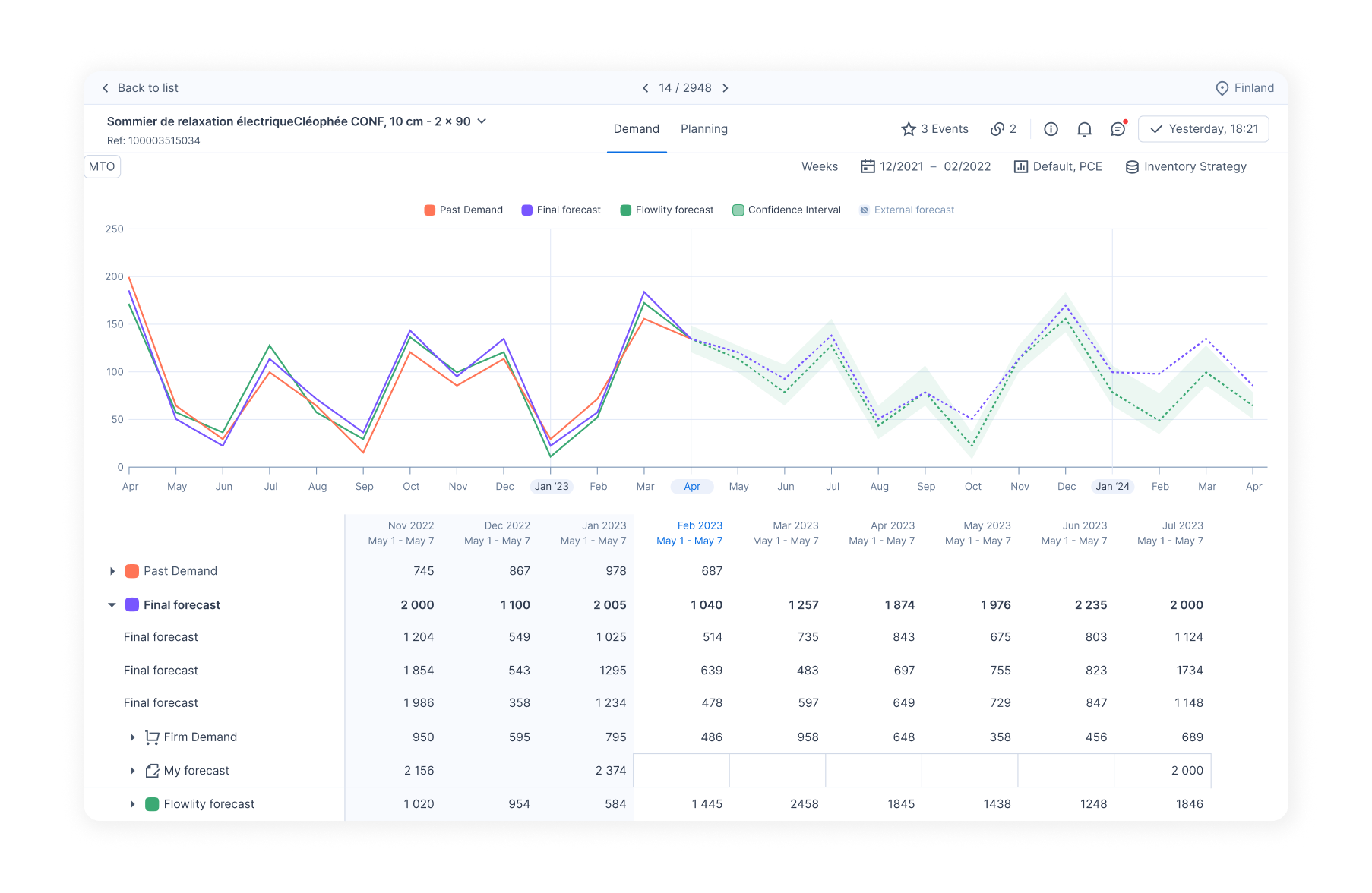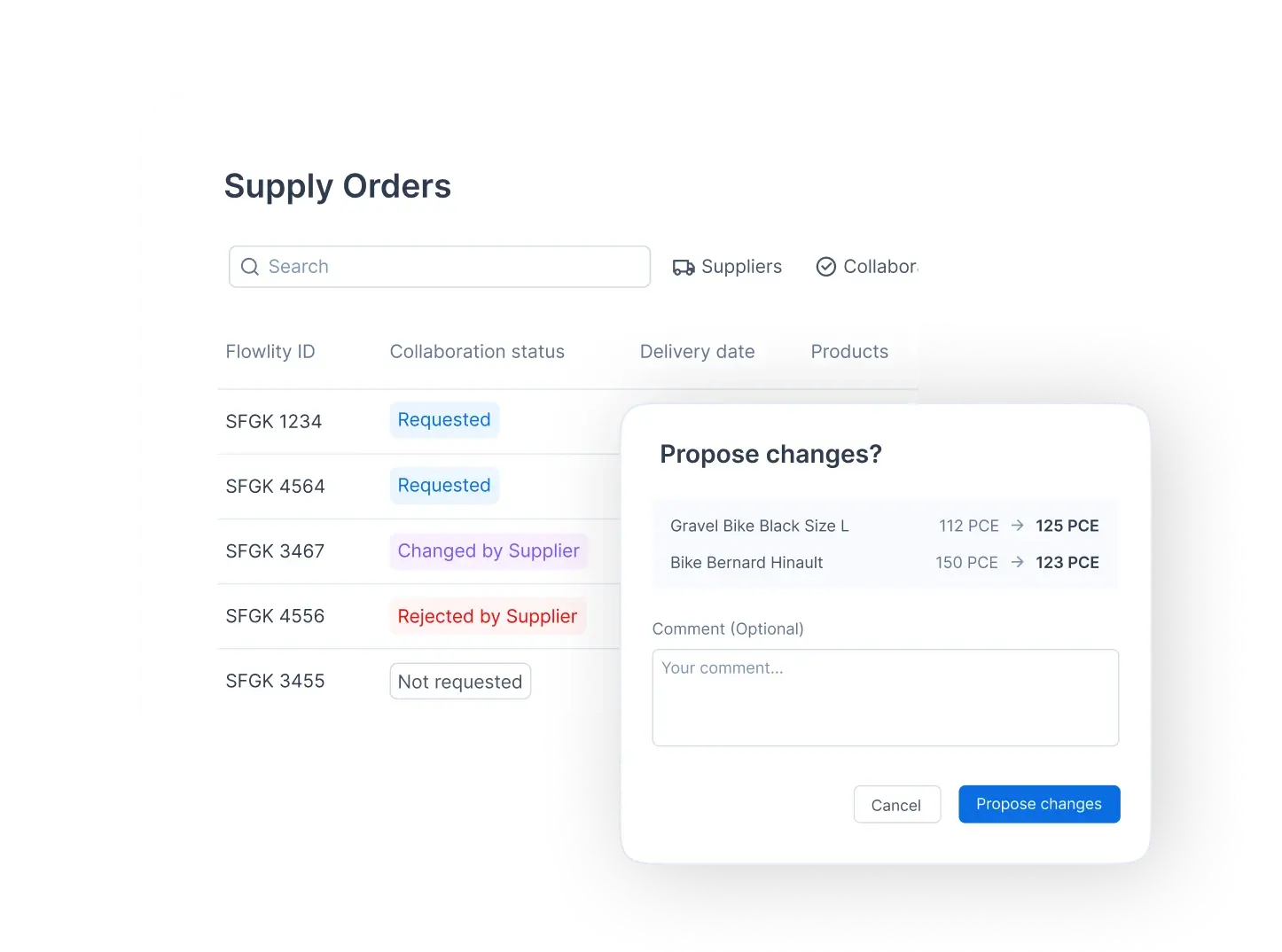The first supply chain planning solution you will enjoy using
Product
Designed for modern supply chain teams.

Artificial intelligence

Accessibility

Collaboration
Solutions
All you need in one single product to plan Supply Chain flows end to end.












.webp)
Demand Planning
Accurately forecast future demand at the SKU level to ensure optimal inventory availability and meet customer needs effectively.

.webp)
Inventory Optimization
Leverage data and advanced algorithms to determine the ideal inventory levels for each SKU, minimizing costs while maintaining service levels.

.webp)
Supply Planning
Align your supply with demand forecasts by maintaining appropriate inventory levels and considering specific constraints such as lead times and capacity.

.png)
Sales & operations planning
Synchronize daily operations with strategic objectives to enhance cross-functional collaboration and drive business performance


Collaborative planning
Provide real-time visibility to both your team and suppliers, fostering better coordination and responsiveness across the supply chain

.webp)
AI-Powered Margin Management
Flowlity's AI empowers you to optimize your margin by strategically adjusting prices and promotions. Our technology forecasts the impact of your pricing decisions on sales volumes.
Customers
The Flowlity experience is just different. Easy, fast and quick ROI.
Performance



Performance



Performance




accuracy

.svg)
Level up your supply chain withAI
Get a demo
Tech
AI and SaaS native technologies. Highest security standards and fast integration.

.svg)
.svg)
.svg)
.svg)

.svg)
.svg)
.svg)
.svg)
.svg)
.svg)





.svg)
.svg)
.svg)


.svg)


.svg)

.svg)
.png)
.svg)

.png)
.svg)
.png)
.svg)

.svg)
.png)
.svg)
.png)
.svg)

.svg)


.svg)









